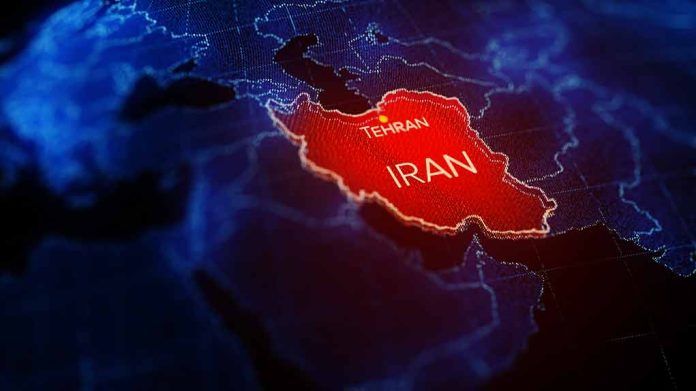🔴 Website 👉 https://u-s-news.com/
Telegram 👉 https://t.me/usnewscom_channel
Iran’s execution of German-American journalist Jamshid Sharmahd exposes the dark underbelly of authoritarian regimes and their blatant disregard for human rights and international law.
Iran’s brutal execution of German-American journalist Jamshid Sharmahd sends shockwaves through the international community, exposing the regime’s ruthless suppression of dissent and utter disregard for human rights.
At a Glance
- Jamshid Sharmahd, a German-American journalist and dissident, was executed in Iran on October 28, 2024, after a sham trial on disputed terrorism charges.
- Sharmahd was allegedly abducted by Iranian agents in 2020 during a trip to Dubai, highlighting Iran’s brazen disregard for international law.
- The execution has sparked international outrage, with Germany and the EU condemning Iran’s actions and threatening severe consequences.
- The incident underscores the perilous situation faced by dual nationals and journalists in Iran, as well as the regime’s ongoing human rights abuses.
A Life Cut Short by Tyranny
Jamshid Sharmahd’s journey from Tehran to Germany and later to the United States exemplifies the pursuit of freedom and democracy that so many Iranians yearn for. Born in Tehran in 1955, Sharmahd moved to Germany as a child, became a German citizen in 1995, and later settled in the United States in 2003. His affiliation with Tondar, a US-based Iranian opposition group advocating for the restoration of Iran’s monarchy, made him a target for the Iranian regime’s wrath.
The Iranian regime’s accusation that Sharmahd orchestrated the 2008 Shiraz mosque bombing, which he vehemently denied, led to his unjust death sentence. Human rights organizations worldwide condemned his trial as a farce, with Amnesty International calling it a “grossly unfair trial.” The fact that Iran could brazenly kidnap a foreign national from another country, subject him to a sham trial, and execute him despite international protests, speaks volumes about the regime’s disregard for human rights and international law.
Tragic News: Iran Claims Execution of Jamshid Sharmahd.
Just four months ago, I had the privilege of interviewing Jamshid Sharmahd’s daughter, Gazelle. For four long years, Gazelle has tirelessly fought for her father’s freedom. Jamshid, a German-American-Iranian computer…
— Jonathan Sacerdoti (@jonsac) October 29, 2024
International Outcry and Diplomatic Fallout
The execution of Jamshid Sharmahd has rightfully sparked outrage across the globe, with Germany taking the lead in condemning Iran’s actions. Chancellor Olaf Scholz didn’t mince words when he called the execution a “scandal,” while German Foreign Minister Annalena Baerbock went even further, labeling it “murder.”
Germany’s swift response included recalling its ambassador to Berlin for consultations and summoning Iran’s charge d’affaires to hear Germany’s protest. The European Union has also condemned the execution and is considering measures in response. This diplomatic fallout demonstrates the growing isolation of Iran on the world stage due to its continued human rights abuses and disregard for international norms.
Jamshid Sharmahd’s execution shows once again what an inhumane regime is in power in Tehran – a regime that punishes its young people, its own population and foreign nationals with death. Evidently no one is safe in Iran, also under the new Government. – @ABaerbock 3/3
— GermanForeignOffice (@GermanyDiplo) October 28, 2024
A Pattern of Hostage Diplomacy
Sharmahd’s execution is not an isolated incident but part of a disturbing pattern of what can only be described as hostage diplomacy by the Iranian regime. The Biden administration’s failure to include Sharmahd in a 2023 prisoner swap deal highlights the complexities and moral quandaries involved in negotiating with rogue states. This oversight has drawn criticism and comparisons to past hostage situations, raising questions about the effectiveness of current diplomatic approaches in dealing with Iran.
“The entire process, including his arrest, conviction, and execution, constitutes a serious violation of international law,” stated Mahmood Amiry-Moghaddam, highlighting the egregious nature of Iran’s actions.
The execution of Jamshid Sharmahd serves as a stark reminder of the dangers faced by journalists, dissidents, and dual nationals in Iran. It underscores the urgent need for a unified and robust international response to Iran’s human rights abuses. The free world must stand firm against such blatant violations of human rights and international law, lest we embolden other authoritarian regimes to follow suit.

